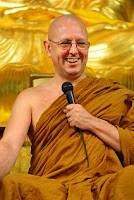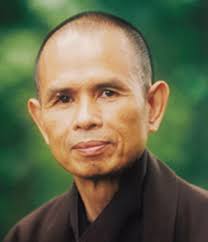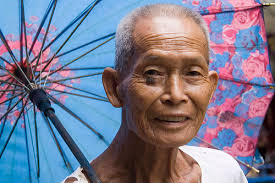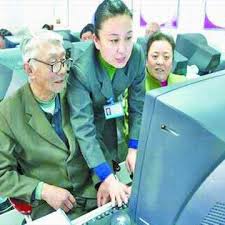During the Wesak Day, we have sold some eco-enzyme made by Sis Dora. The sales was quite encouraging.
Most of us know that eco-enzyme can be used for household cleaning as well as a fertiliser, but do you know it can also be used to heal diabetic wound ?
The Star reported on 2 September 2008 that Mr. Chin Choon Sin, 70 has healed his severe diabetic sore feet with eco-enzyme.
“I was so helpless at that time as my feet has become dark with infections. Even the doctor had given up but I knew I had to try something to save my feet,” he said.
Chin is able to walk today as his wounds have dried up and the energetic elder was seen promoting the use of eco-enzyme during a talk held in conjunction with the Drainage Cleanliness Campaign held at the Dewan Rakyat Pasar Pagi, Tanjung Bungah, Penang on 1 September 2008. (Here is the link)
 Convinced user:Chin showing the wound on his leg
Convinced user:Chin showing the wound on his leg
that has healed with the help of eco-enzyme. Eco-enzyme can also be used to clean vegetables as it can neutralise the pesticide*
Eco-enzyme can also be used to clean vegetables as it can neutralise the pesticide*
Here is the full list of eco-enzyme's most common usage :
At homes, eco-enzyme can be used :
- as a household cleaning liquid
- to remove foul odours, molds and grime in the kitchen and toilet
- as an anti-bacterial and anti-viral agent
- to drive away insects
- to clean carpets and remove ticks
- for laundry washing and ironing
- for mopping floors
- for cleaning cars
In agriculture, eco-enzyme can be used for:
- to reduce the usage of chemical fertilizers
- to keep the farm free from insects and infections
- as a soil fertilizer for vegetable growing
- as a natural pesticide and herbicide
- to convert sandy land to fertile farm land
- keep the air cool and clean in the farm atmosphere
- clean the dirty and impure water in the farm
Due to its anti-bacterial property, it can also be used for personal hygiene such as hair washing and body cleaning.
* If you are using the enzyme for healing wound, cleaning vegetable or for personal hygience, please make sure that the kitchen waste used to make the enzyme were thoroughly cleaned and don't contain any impurities such as vegetable worms etc.
 The eco-enzyme must be stirred regularly.Sis. Dora demonstracted how it should be done.
The eco-enzyme must be stirred regularly.Sis. Dora demonstracted how it should be done.Our eco-enzyme is sold at RM5 per bottle. Other than the usual ingredients (i.e. fruit peels and brown sugar), Sis. Dora has also added metta (loving kindness) and karuna (compassion) in making it. The entire proceeds goes to Welfare Fund. We are keeping some stock in our store at Buddhist Maha Vihara. If you want to buy some, please contact Bro. Pheng at Buddhist Maha Vihara. He is available at the Vihara from 7:00pm- 10:00pm on Monday, Tuesday and Friday. You can also call me at 013-3690612 to make special arrangement to collect it.
We thank you for your support to our fundraising for our charity work.



































